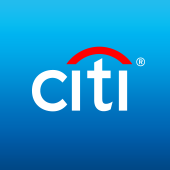This article was first published on GuruFocus.
Citigroup (NYSE:C) is quietly making one of its biggest digital bets yet by joining a consortium of nine European lenders, including ING Groep, UniCredit and DekaBank, to launch a regulated stablecoin based on the euro. The group has already created a new entity based in the Netherlands to manage the project, with the aim of a symbolic launch in the second half of 2026. For Citigroup, this decision could mark a turning point: it is the only non-European bank in the alliance, positioning itself at the center of Europe’s efforts to build an alternative to the stable dollar market. The banks say their common goal is to strengthen Europe’s strategic autonomy in payments by creating a credible and local digital euro system.
Behind this partnership lies a larger story, that of how quickly digital money is becoming mainstream. Stablecoins, designed to resist fiat currencies, could process more than $50 trillion in payments by 2030, according to Bloomberg Intelligence. This would mean that up to a quarter of consumer transactions could go through blockchain rails, compared to almost nothing today. The market, still dominated by dollar-pegged tokens, leaves plenty of room for growth for euro-based coins, which currently account for around $477 million of the total $300 billion supply.
Citigroup’s blockchain ambitions are growing on several fronts. Earlier this week, its venture capital arm backed BVNK, a stablecoin infrastructure company, while the bank itself joined Goldman Sachs and Bank of America to explore digital currency systems for institutional payments. CEO Jane Fraser recently confirmed that the bank is considering its own stablecoin, signaling a deeper commitment to the space. Citigroup shares fell about 1% to $94.75 on Friday, marking a fourth straight decline, although the stock remains up about 35% this year, a reminder that Wall Street’s digital experiences have become part of the financial mainstream.




